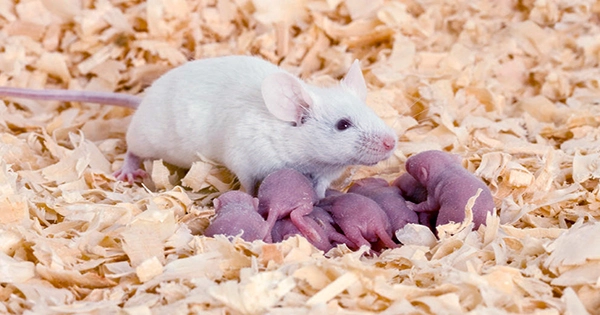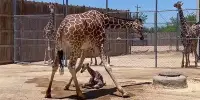Female animals are assumed to be born with a finite amount of eggs, and diminished reproductive potential occurs when the number or quality of these eggs is lowered. Although stress is a part of our everyday lives, it is one of the factors that contribute to this. Researchers are now investigating the impact of stress on ovarian reserves. Scientists have been studying the impact of stress on fertility by subjecting rats to scared cries, white noise, or background noises. Yes, for three weeks, the rats screamed – poor animals! This noise was supplied for 6 hours a day, 3 in the morning and 3 in the afternoon, through a speaker 50 centimeters (19.7 inches) above their cage. Their findings appeared in the journal Endocrinology.
Why employ screaming, which isn’t a common stressor in research? For psychological stress investigations in rats, the chronic unpredictable mild stress (CUMS) and restraint stress models are commonly utilized, however some of the stressors used – such as food restriction or light cycle alterations – may induce issues that are not stress-related. The standard CUMS white noise stress option was also found to be insufficient, prompting the researchers to employ the unique scream approach (the noise for which was “kindly provided by professor Chen Huang”, as the authors note). This also demonstrates why, if you want your pet rat to be happy, you should not play screamo next to their cage.
The researchers looked at the influence on sex hormones, the capacity to get pregnant and give birth after mating, and the amount and quality of eggs after the rats had been stressed enough. “We used a scream sound model in mice to study the effect of stress on ovarian reserve,” stated Wenyan Xi, PhD, of Xi’an Jiao Tong University’s Second Affiliation Hospital in Xian, China. “We discovered that female rats that were exposed to the scream sound had a lower ovarian reserve and were less fertile.”
The screaming sound was discovered to lower estrogen (essential for growth and reproductive development) and Anti-Mullerian (helps create reproductive organs) hormone levels. The sound also reduced the quantity and quality of eggs, resulting in fewer litters. “Based on these data, we believe stress is linked to a reduction in ovarian reserve,” Xi added. “Determining a link between chronic stress and ovarian reserve is critical because it will help us understand the limitations of existing treatment therapies and give vital insight into the etiology of ovarian reserve decline.”














